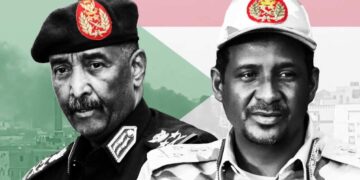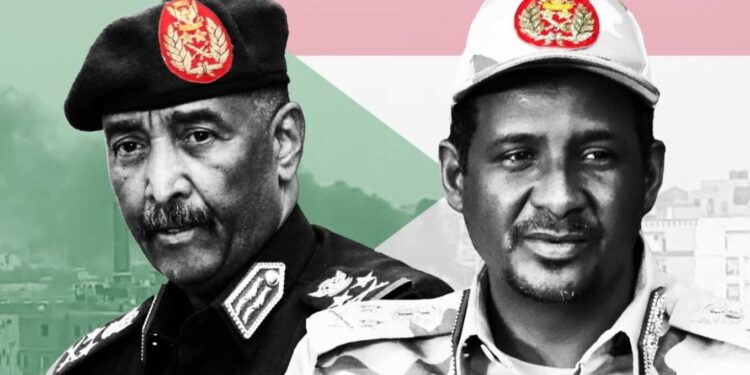By John Ikani
Renewed efforts were made by the United States and Saudi Arabia on Sunday to initiate truce negotiations between Sudan’s warring generals as the deadly conflict entered its eighth week.
Despite multiple ceasefires being agreed upon and subsequently broken, representatives of Sudan’s regular army and paramilitary Rapid Support Forces (RSF) are still present in Jeddah, a coastal city in Saudi Arabia, as confirmed by the Saudi foreign ministry.
Calling for the “parties to agree to and effectively implement a new ceasefire, with the aim of building to a permanent cessation of hostilities,” foreign mediators are urging for a resolution to the prolonged conflict.
Following the expiration of a five-day extension of a truce brokered by the US and Saudi Arabia, concerns of a potential escalation persist, as no signs of the conflict abating have emerged.
The situation remains dire, with over 1,800 casualties reported by the Armed Conflict Location and Event Data Project, and the United Nations estimating that 1.2 million people have been displaced, with over 425,000 seeking refuge abroad.
The RSF claimed responsibility for shooting down a fighter jet on Sunday, citing an “audacious airborne assault upon our forces’ positions” by the Sudanese army in northern Khartoum. The military, however, attributes the jet crash to a “technical malfunction.”
Eyewitnesses observed an aircraft flying from the south to the north of the capital, engulfed in flames.
The conflict initially erupted in the Sudanese capital on April 15 between the army led by de facto leader Abdel Fattah al-Burhan and the RSF commanded by his former deputy turned rival, Mohamed Hamdan Daglo.
Since then, deadly urban battles have engulfed Khartoum and the war-torn Darfur region, forcing residents to flee and endure weeks of hardship due to depleted food and essential supplies.
The Saudi statement issued on Sunday, just two days before the arrival of US Secretary of State Antony Blinken in the Gulf kingdom, indicates that discussions on Sudan are likely to be a key agenda item.
Previous truce agreements were intended to facilitate much-needed humanitarian aid and ensure safe passage to conflict-affected areas in Sudan. However, all previous accords were repeatedly violated by both sides.
On Wednesday, the Sudanese army withdrew from the talks in Jeddah, prompting the US-Saudi mediators to formally suspend the negotiations a day later. The United States expressed readiness to resume the talks once both parties demonstrate a serious commitment to a ceasefire.
While both Burhan and Daglo have made public pledges to protect civilians and establish humanitarian corridors, reports indicate that fighting intensified following the army’s departure from the Jeddah talks. A Khartoum market was struck by an army bombardment on Thursday, resulting in the deaths of 18 civilians, according to a committee of human rights lawyers.
With over half of Sudan’s population, approximately 25 million people, now in urgent need of aid and protection, the situation in the already impoverished country continues to worsen, according to the United Nations.




































